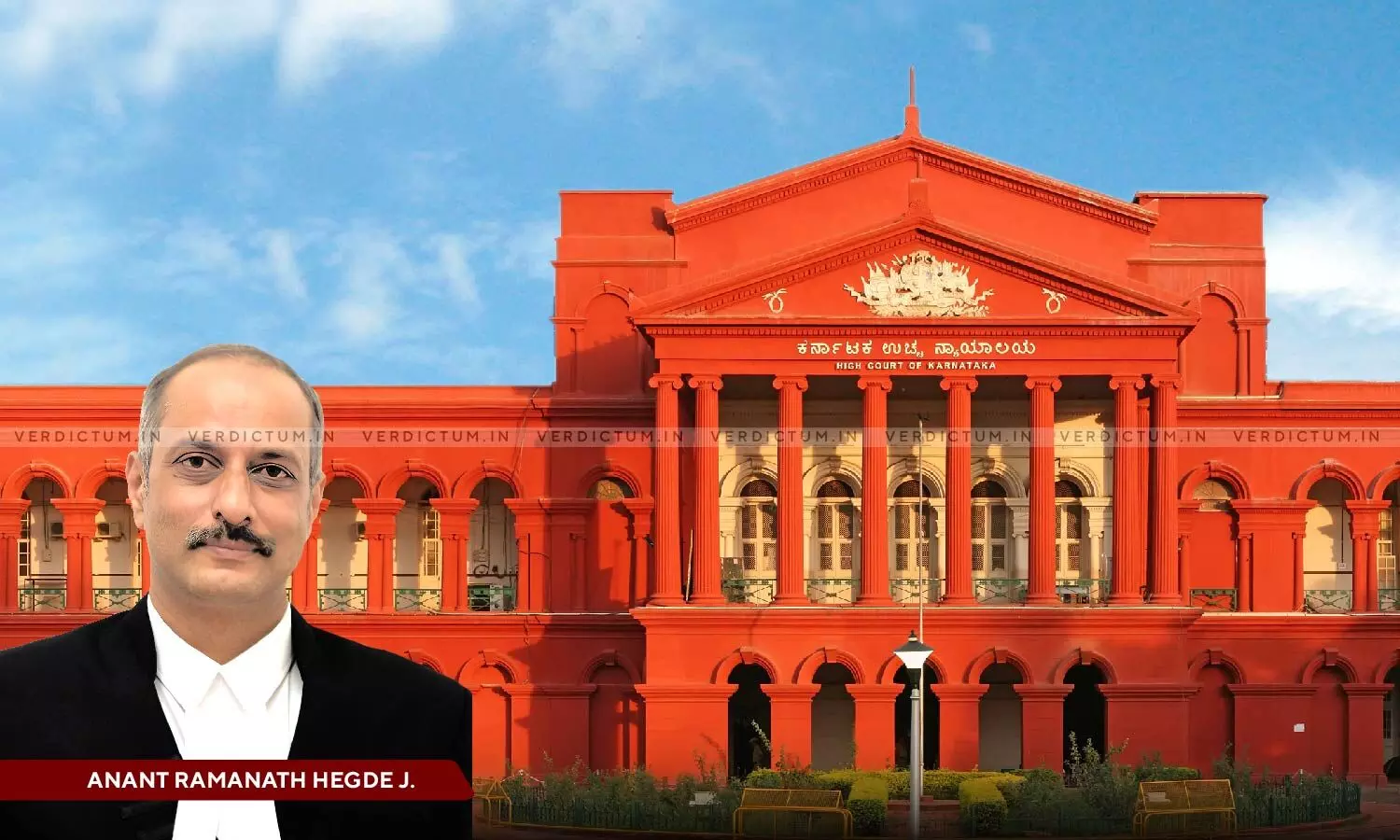
Trademark Infringement Suit Can Be Filed In A Place Where Cause Of Action Has Arisen Even If Plaintiff/Defendant Is Not Residing There: Karnataka HC
 |
|The Karnataka High Court held that the right of the plaintiff to institute a Trademark Infringement suit in a place where the cause of action has arisen is not taken away even if the plaintiff or the defendant is not residing in the said place.
In that context, the Bench of Justice Anant Ramanath Hegde said that, "merely because the defendant has a subordinate office at a place other than the place where it has a principal office, the Court in such place where the subordinate office is located will not automatically get the jurisdiction to entertain the suit. The place where the subordinate office of the defendant corporation is located will get the jurisdiction to try the suit only if the cause of action arises in that place where the subordinate office of the defendant is located."
Counsel Puneet Yadav appeared for the appellants, while Counsel Venkatesh R Bhagat appeared for the respondents.
In the case, the issue was whether a suit falling under Section 134 of the Trade Marks Act, 1999 can be instituted in a Court where neither the plaintiff nor the defendant resides or carries on business or personally works for gain within the territorial jurisdiction of the Court where the cause of action had arisen.
The plaintiffs had filed a suit for injunction alleging trademark infringement and passing off against the defendants. While the plaintiffs resided in Uttar Pradesh, some defendants resided in Uttar Pradesh, and others in Haryana. None of them had a branch office within the jurisdiction of the City Civil Court, Bengaluru, where the suit was instituted. The defendants invoked Order VII Rule 11 of the Code of Civil Procedure to reject the plaint, arguing lack of territorial jurisdiction.
The Trial Court allowed the application, prompting the plaintiffs to appeal. The plaintiffs argued that the cause of action had arisen in Bengaluru as the infringement and passing off had occurred there. They relied on various judgments to support their contention.
The defendants, on the other hand, contended that since the suit was filed under Section 134 of the Act, it could only be instituted where the plaintiff had a principal office, or where any defendant resided, carried on business, or worked for gain, or where any defendant had a subordinate office and the cause of action had also arisen.
The Court held that, "Merely because the plaintiffs could have filed a suit in Uttar Pradesh where the principal office of the plaintiffs is located or the plaintiffs could have filed a suit in a place where the defendants are carrying on the business, it does not mean that the Court within whose jurisdiction the “cause of action” has arisen does not have a jurisdiction to try the suit. This being the position, the Court in Bengaluru has the jurisdiction to entertain the suit under Section 20(c) of the Code."
In light of the same, the appeal was allowed, and the parties were directed to appear before the Trial Court.
Appearances:
Appellants: Counsels Puneet Yadav, Deepa J
Respondents: Counsel Venkatesh R Bhagat
Cause Title: Varun Chopra & Anr. vs Shyam Sunder Chopra & Sons & Ors.
Click here to read/download the Judgment